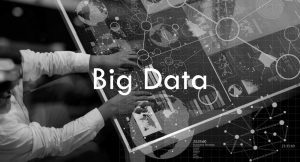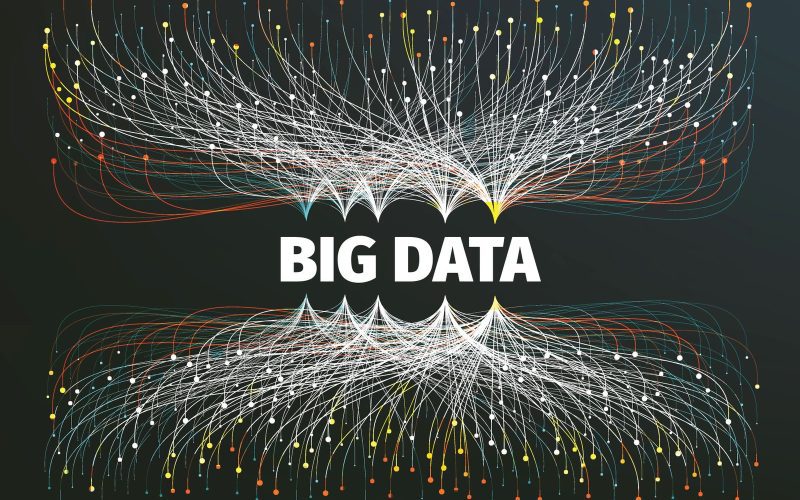Big Data: Driving Decision Making in Business
In the digital age, businesses are inundated with vast amounts of data. This deluge of information, often referred to as Big Data, has the power to transform the way companies make decisions, drive strategies, and gain competitive advantages. From analyzing customer behaviors to streamlining operations, Big Data is fundamentally changing how businesses operate and thrive in an increasingly data-driven world.
Introduction to Big Data and Its Role in Business Decision Making

Big Data refers to large volumes of data that are too complex and vast for traditional data-processing software to handle. This data can come from multiple sources like social media, transactional data, customer feedback, online behaviors, and more. By processing and analyzing this data, businesses can uncover valuable insights that help them make smarter, faster, and more accurate decisions.
In today’s fast-paced world, the importance of data-driven decision-making cannot be overstated. Businesses that harness the power of Big Data can unlock new opportunities for growth, innovation, and efficiency. Understanding how to use data effectively is a key differentiator in competitive markets.
The 3 Vs of Big Data: Volume, Velocity, and Variety
The concept of Big Data can be understood through the 3Vs: Volume, Velocity, and Variety. These three characteristics define the scale, speed, and types of data that businesses are working with.
Volume: This refers to the sheer amount of data that businesses generate. As organizations collect data from more sources (social media, transactions, devices), the volume grows exponentially. For example, Facebook generates over 4 petabytes of data every day.
Velocity: The speed at which data is generated and needs to be processed. Data can be created at lightning speed in today’s digital environment. For example, the data generated by online transactions, mobile devices, and IoT (Internet of Things) sensors needs to be analyzed in real-time to derive insights.
Variety: Data exists in many different forms—structured, unstructured, and semi-structured. Structured data refers to organized information (e.g., spreadsheets), while unstructured data includes things like social media posts, emails, and videos. Semi-structured data includes formats like XML or JSON files. Businesses need tools that can handle and process all these types of data.
Each of these 3Vs presents unique challenges but also opens up opportunities for businesses to uncover valuable insights and gain a competitive edge.
Using Big Data for Enhanced Customer Insights
One of the most significant ways Big Data is changing business decision-making is through the ability to gather detailed insights into customer behavior. By analyzing the vast amount of data from online activities, social media interactions, purchasing history, and more, companies can gain a deeper understanding of their customers’ needs and preferences.
Benefits:
- Personalization: Big Data allows businesses to personalize marketing campaigns and product recommendations. For example, companies like Amazon use data to recommend products based on past purchases and browsing behavior.
- Predictive Insights: Businesses can predict customer behavior. By analyzing trends and patterns, companies can anticipate customer needs before they arise. For instance, Netflix uses Big Data to suggest movies and shows based on viewing history.
Case Study:
Target’s Predictive Analytics Target used Big Data to predict customer buying habits and behaviors, helping them drive sales. One of the most famous examples is when Target used purchasing data to predict that a customer was pregnant based on items they were buying (like unscented lotion, supplements, etc.). This insight allowed Target to target specific ads to the customer, increasing sales and enhancing their overall marketing efforts.
Optimizing Operational Efficiency with Big Data

Big Data also helps businesses improve their internal operations. By analyzing operational data, companies can identify inefficiencies and streamline processes. From supply chain management to workforce productivity, Big Data provides actionable insights that drive cost reductions and improve operational performance.
Benefits:
- Supply Chain Optimization: Big Data helps businesses optimize their supply chains by predicting demand, identifying bottlenecks, and managing inventory more effectively. For example, Walmart uses Big Data to track inventory levels across its stores and adjust supply chain operations in real-time.
- Cost Efficiency: By monitoring data related to production processes, businesses can identify areas where costs can be cut. This helps to increase profitability without sacrificing quality.
Case Study:
UPS’s Route Optimization UPS uses Big Data and predictive analytics to optimize delivery routes. By analyzing factors like traffic, weather, and delivery times, UPS improves fuel efficiency and reduces delivery costs. Their data-driven approach has saved them millions in fuel costs and reduced their carbon footprint.
Risk Management and Fraud Detection through Big Data
Big Data is increasingly being used to manage risks and detect fraud. By analyzing large datasets for patterns and anomalies, businesses can identify potential threats before they materialize. This predictive approach allows companies to act swiftly and mitigate risks.
Benefits:
- Fraud Detection: In industries like finance and retail, Big Data helps to identify fraudulent activities by recognizing unusual patterns in transaction data. For example, credit card companies use real-time data to spot unusual spending behaviors and freeze accounts when necessary.
- Regulatory Compliance: Big Data helps companies ensure they meet industry regulations by continuously monitoring and analyzing data to detect any compliance issues.
Case Study:
American Express Fraud Detection American Express uses Big Data to monitor cardholder transactions and detect fraudulent activity in real-time. By analyzing transaction patterns and identifying outliers, they can immediately flag suspicious activity, helping to protect both the customer and the business.
Innovation and Product Development Powered by Big Data
Big Data plays a vital role in driving innovation and product development. By analyzing market trends, customer feedback, and performance metrics, companies can identify gaps in the market and develop new products that better meet consumer demands.
Benefits:
- Market Research: Big Data helps businesses understand market trends and customer feedback on existing products. Companies like Apple and Samsung use Big Data to analyze consumer reviews, social media posts, and feedback to design new features or entirely new products.
- Faster Time to Market: With data-driven insights, businesses can speed up product development and launch new products faster than competitors.
Case Study:
Procter & Gamble (P&G) P&G uses Big Data for product development and innovation. By analyzing consumer behavior, preferences, and feedback, they can develop products that cater specifically to market needs. For instance, their data-driven approach led to the successful launch of Tide Pods, a product that revolutionized laundry detergent.
Gaining a Competitive Advantage with Big Data

Businesses that effectively harness Big Data gain a significant competitive advantage. The ability to make faster, more informed decisions allows companies to stay ahead of the curve, react quickly to market changes, and outperform their competitors.
Benefits:
- Faster Decision-Making: By using real-time data, businesses can make quicker decisions that give them an edge in fast-moving industries.
- Better Strategy Formulation: Data insights allow businesses to refine their strategies and target new customer segments effectively.
Case Study: Netflix’s Data-Driven Success
Netflix is a prime example of a company that uses Big Data to gain a competitive advantage. By analyzing viewer preferences, watching habits, and ratings, Netflix tailors its content recommendations and even produces its own original programming based on what the data tells them their audience will love.
Challenges in Implementing Big Data in Business
While the benefits of Big Data are clear, there are several challenges that businesses must address to fully harness its potential:
Data Privacy and Security:
With the increasing amount of personal data being collected, businesses must implement robust security measures to protect customer data and comply with regulations like GDPR.
Data Quality:
Poor-quality data leads to incorrect insights and poor decision-making. Businesses need to invest in data management and cleansing processes to ensure the accuracy of their data.
Talent Shortage:
The demand for skilled data scientists, analysts, and engineers is high. Companies often struggle to find the talent necessary to interpret Big Data effectively.
The Future of Big Data in Business Decision Making
The future of Big Data in business looks incredibly promising. As technology continues to evolve, businesses will have access to even more advanced tools to analyze and interpret data.
Artificial Intelligence (AI) and Machine Learning (ML):
These technologies will allow businesses to automate data analysis, making it even faster and more accurate. AI can help businesses make predictive decisions and automate repetitive tasks.
Predictive Analytics:
With Big Data, businesses can look ahead and anticipate future trends. Predictive analytics will become even more important as companies strive to stay ahead of changing market conditions.
Edge Computing:
As the number of connected devices increases, businesses will rely on edge computing to process data closer to where it’s generated. This will enable faster decision-making and reduce latency.
Conclusion:
Big Data is no longer just a buzzword—it’s a critical tool that businesses are using to drive smarter decisions, improve operational efficiency, and foster innovation. By leveraging data to gain deeper insights into customer behavior, optimize operations, and reduce risks, businesses can stay competitive and thrive in the ever-changing marketplace.
While challenges such as data privacy and talent shortages remain, the potential of Big Data to transform businesses is undeniable. As technology evolves, companies that can harness the power of Big Data will be better positioned for success in the future.
FAQs
What is Big Data?
Big Data refers to vast amounts of structured and unstructured data that businesses use to derive insights and make informed decisions.
How does Big Data help businesses make decisions?
Big Data allows businesses to analyze customer behavior, optimize operations, detect fraud, and innovate products, leading to better decision-making.
What are the challenges of using Big Data in business?
Key challenges include data privacy and security, ensuring data quality, finding skilled professionals, and integrating data from multiple sources.
What is predictive analytics in Big Data?
Predictive analytics uses historical data to forecast future trends and behaviors, helping businesses make proactive decisions.
How is Artificial Intelligence (AI) related to Big Data?
AI and Machine Learning help automate data analysis, enabling businesses to make faster and more accurate decisions using Big Data.












